Database management has entered a new era of intelligence and automation. Artificial intelligence is transforming how organizations handle their most valuable asset—data. From automating routine tasks to predicting performance issues before they occur, AI-powered database management solutions are helping businesses reduce costs, improve efficiency, and unlock deeper insights from their data repositories.
How AI is Transforming Database Management
Traditional database management systems require significant human intervention for optimization, maintenance, and troubleshooting. AI changes this paradigm by introducing intelligent automation across the database lifecycle. Machine learning algorithms continuously analyze performance patterns, automatically tune configurations, and even predict potential issues before they impact operations.
This shift represents more than just incremental improvement—it’s a fundamental transformation in how organizations approach data management, enabling unprecedented levels of efficiency, reliability, and insight.
5 Key Capabilities of AI in Database Management
Automated Query Optimization
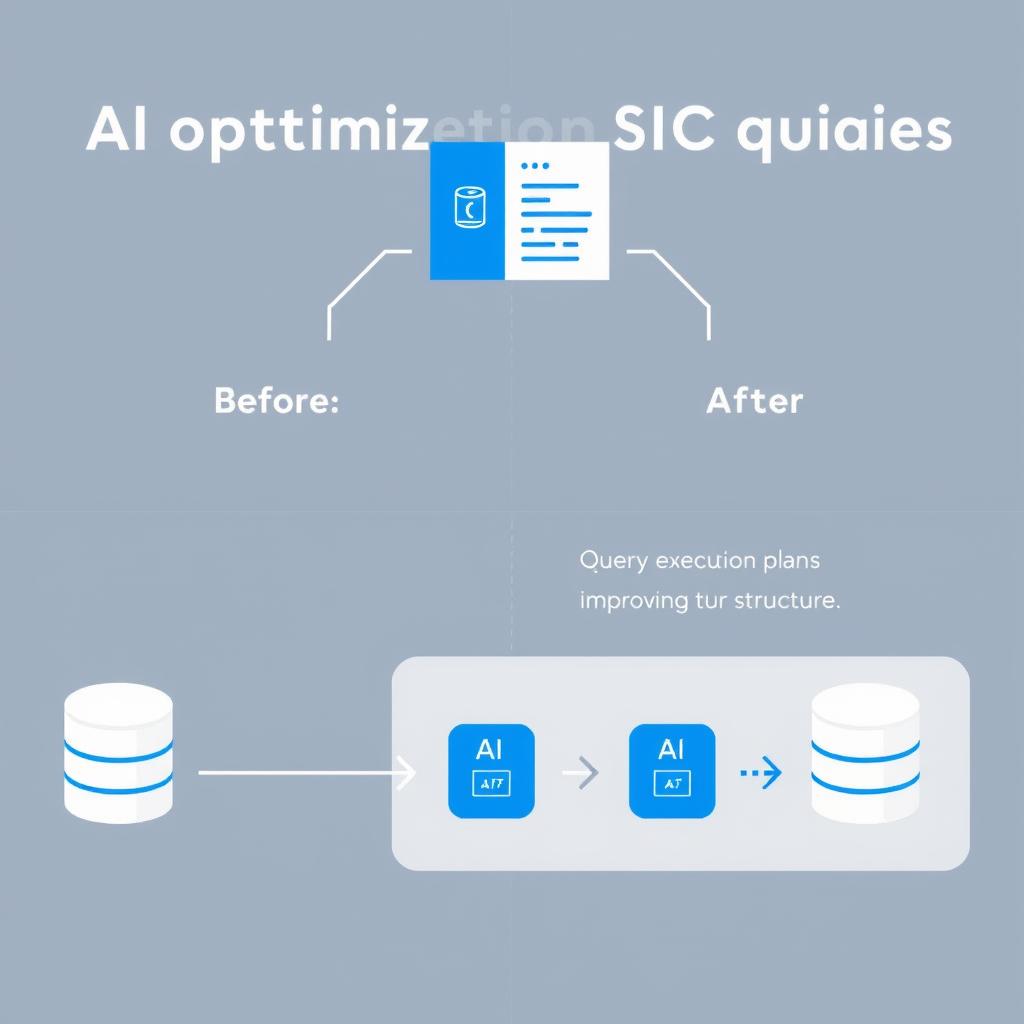
AI algorithms analyze query patterns and automatically optimize execution plans, resulting in faster response times and reduced resource consumption. The system learns from past queries to continuously improve performance without manual intervention.
Intelligent Performance Monitoring
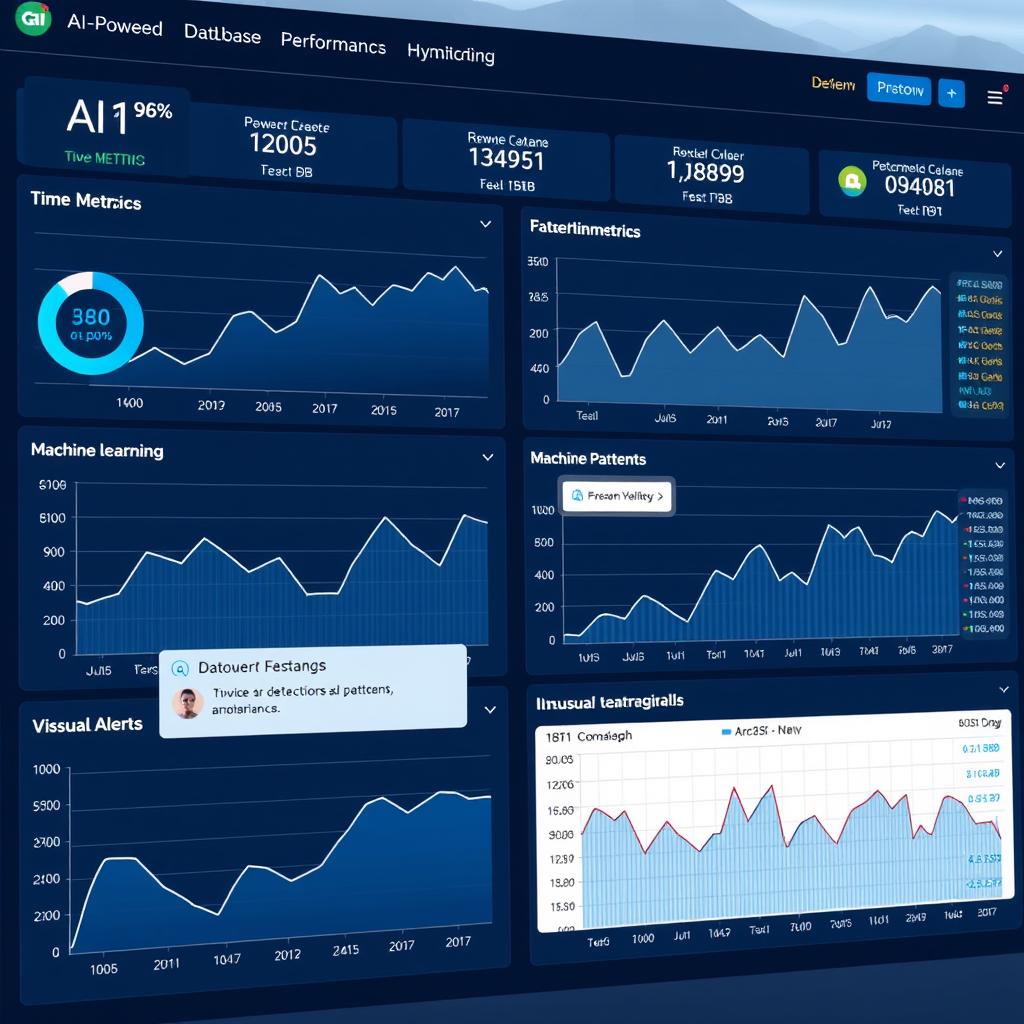
Machine learning models establish performance baselines and detect anomalies that might indicate potential problems. This proactive approach allows organizations to address issues before they impact users or business operations.
Natural Language Interfaces
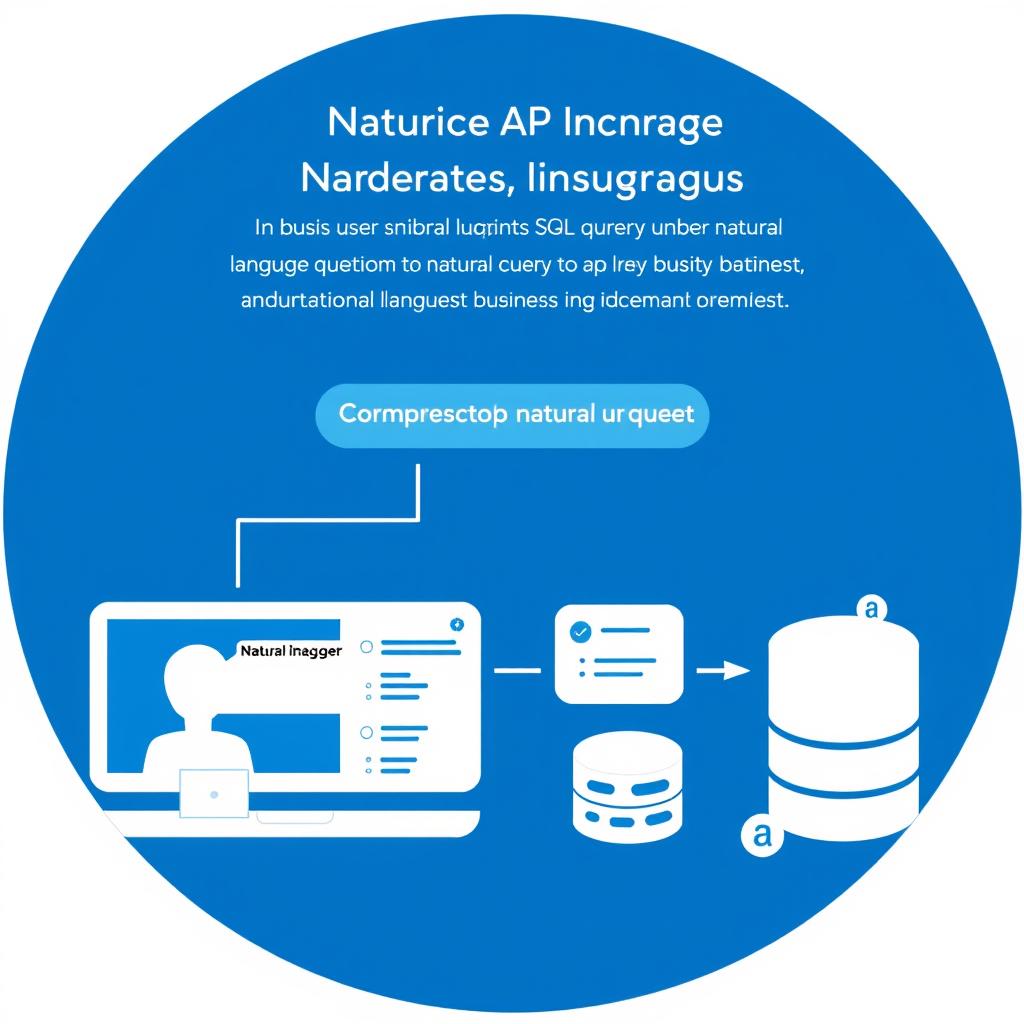
Natural language processing enables non-technical users to query databases using everyday language. The AI translates these questions into complex SQL queries, democratizing data access across the organization.
Predictive Database Maintenance
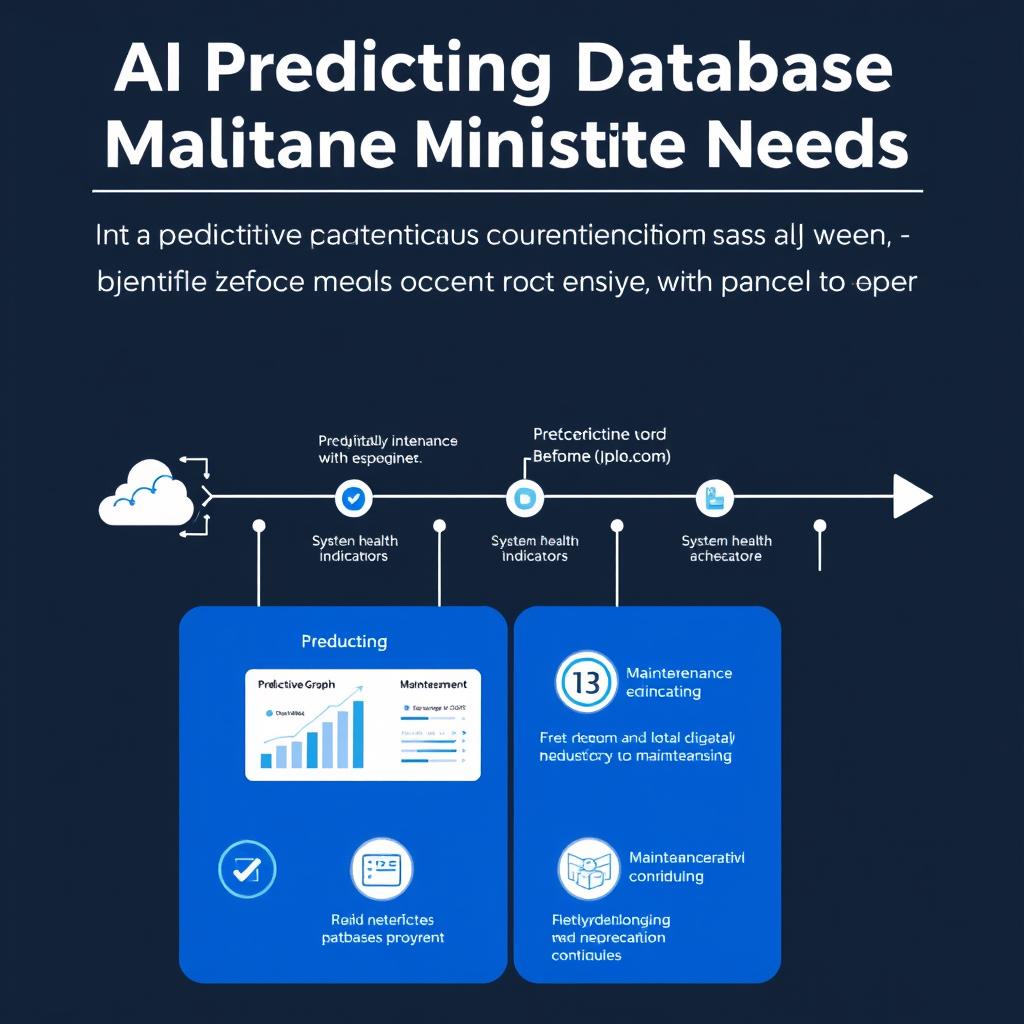
AI analyzes historical performance data to predict when maintenance activities should be performed. This predictive approach minimizes downtime and ensures optimal database health without unnecessary interventions.
Automated Data Security

Machine learning algorithms detect unusual access patterns that might indicate security threats. The system can automatically implement protective measures, reducing the risk of data breaches and ensuring compliance with regulations.
Self-Healing Capabilities
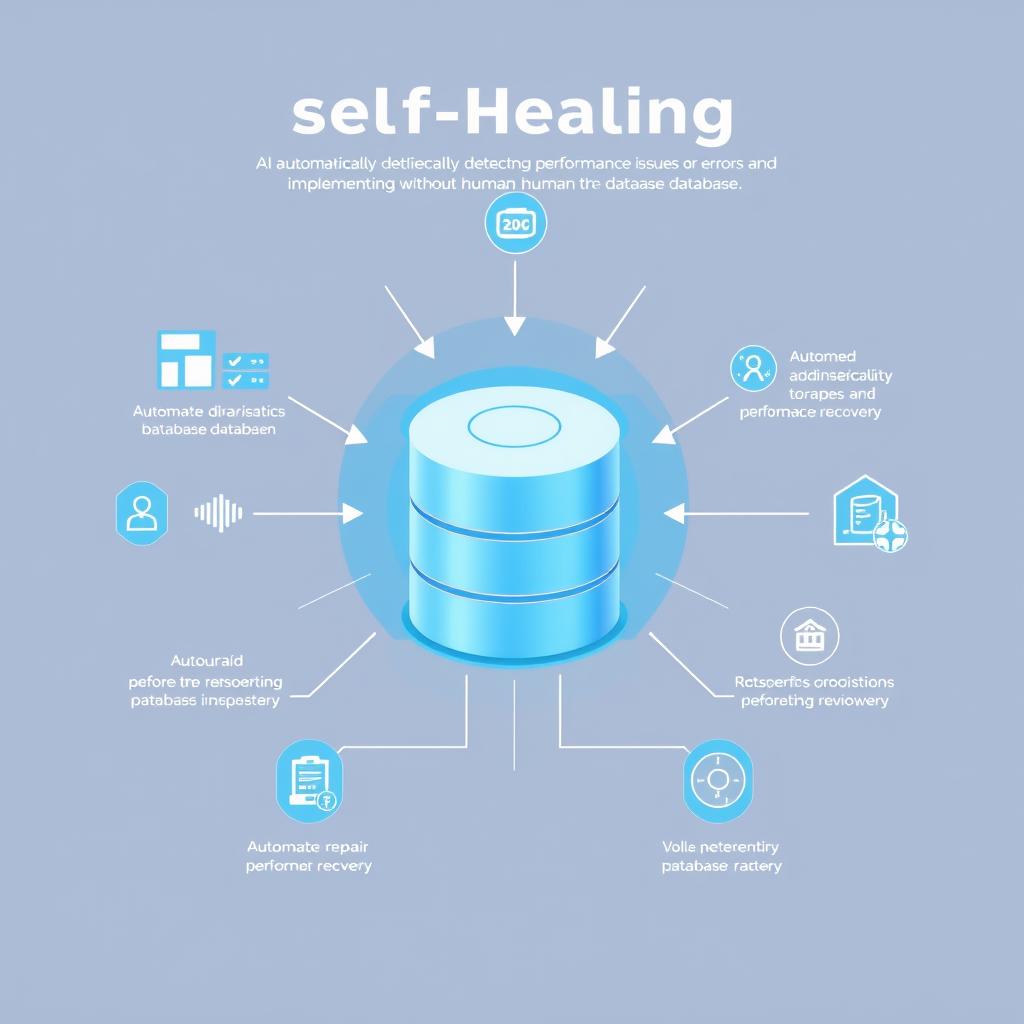
Advanced AI systems can automatically detect and resolve common database issues without human intervention. This self-healing capability ensures high availability and reduces the burden on database administrators.
Transform Your Database Management Today
Discover how AI-powered database solutions can reduce your operational costs while improving performance and reliability.
Business Benefits of AI-Powered Database Management
Operational Efficiency
AI automation reduces the manual effort required for database administration by up to 80%. Tasks that previously required hours of expert attention—such as performance tuning, capacity planning, and query optimization—are now handled automatically and continuously by intelligent systems.
Cost Reduction
Organizations implementing AI in database management report average cost savings of 30-40% through reduced infrastructure requirements, lower administrative overhead, and optimized resource utilization. The system allocates resources precisely where and when they’re needed.
Enhanced Decision Making
Natural language interfaces and automated data analysis make insights more accessible to business users. This democratization of data enables faster, more informed decision-making across all organizational levels without requiring specialized technical skills.
Improved Reliability
Predictive maintenance and self-healing capabilities significantly reduce unplanned downtime. Organizations using AI-powered database management report up to 95% reduction in critical incidents and system outages.
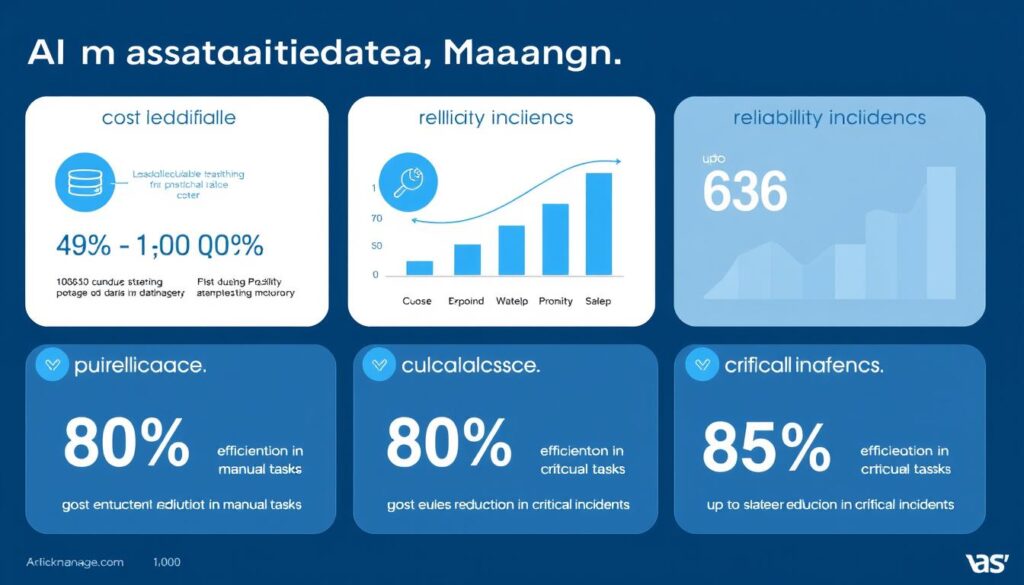
Real-World Applications of AI in Database Management
Financial Services
A global banking institution implemented AI-powered database management to handle their transaction processing system. The result was a 40% improvement in query response times and a 60% reduction in database-related incidents. The system now automatically optimizes itself based on daily transaction patterns.
E-commerce
An online retailer uses AI to manage their product catalog database, which contains millions of items. Natural language interfaces allow marketing teams to directly query the database without IT support, while automated optimization ensures peak performance during high-traffic sales events.
Healthcare
A hospital network employs AI database management to ensure patient records are always accessible while maintaining strict security and compliance. The system automatically detects and prevents unauthorized access attempts while optimizing performance for legitimate clinical queries.
See AI Database Management in Action
Request a personalized demonstration to see how AI can transform your specific database environment.
Implementing AI in Your Database Environment
Assessment and Planning
The journey begins with a comprehensive assessment of your current database environment, identifying key pain points and opportunities for AI-driven improvement. This phase establishes baseline metrics and defines clear objectives for the implementation.
Integration and Configuration
AI database solutions are designed to work alongside your existing systems. The integration process connects the AI engine to your database environment, configuring it to understand your specific data structures, workloads, and business requirements.
Learning and Optimization
Once deployed, the AI system enters a learning phase, analyzing patterns in your database usage and performance. This period typically lasts 2-4 weeks, during which the system builds its understanding of your environment’s unique characteristics.
Continuous Improvement
AI database management is not a one-time implementation but an evolving partnership. The system continuously refines its models based on new data and changing workloads, ensuring ongoing optimization and adaptation to your business needs.
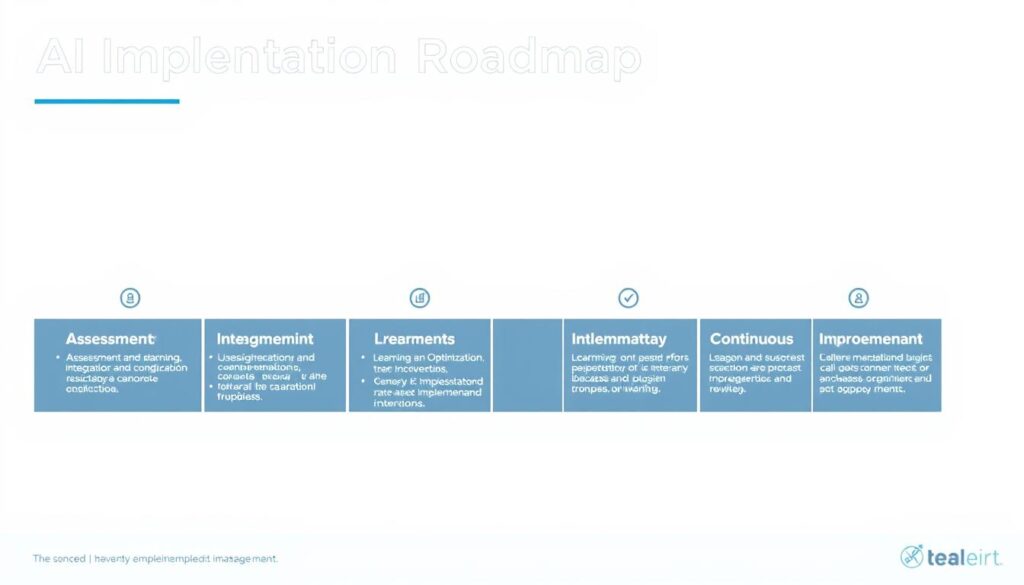
Addressing Common Challenges and Concerns
Data Privacy and Security
Modern AI database solutions are designed with privacy and security as core principles. Data remains within your environment, with the AI processing occurring locally or through secure, encrypted channels. Role-based access controls ensure that sensitive data remains protected.
Integration with Legacy Systems
AI solutions can be implemented incrementally, starting with specific databases or workloads before expanding. Compatibility layers and adapters enable integration with legacy systems, allowing organizations to modernize at their own pace without disruptive migrations.
Skills and Knowledge Transfer
While AI reduces the need for routine database administration, it creates opportunities for DBAs to focus on higher-value activities. Implementation partners provide comprehensive training and knowledge transfer to ensure your team can effectively collaborate with and leverage the AI system.
Return on Investment
The ROI for AI database management typically becomes apparent within 3-6 months of implementation. Cost savings from reduced infrastructure requirements and administrative overhead, combined with performance improvements, deliver measurable financial benefits.
Download Our Comprehensive Guide
Get our detailed guide on implementing AI in database management, including case studies, best practices, and ROI calculations.
Future Trends in AI Database Management
Autonomous Databases
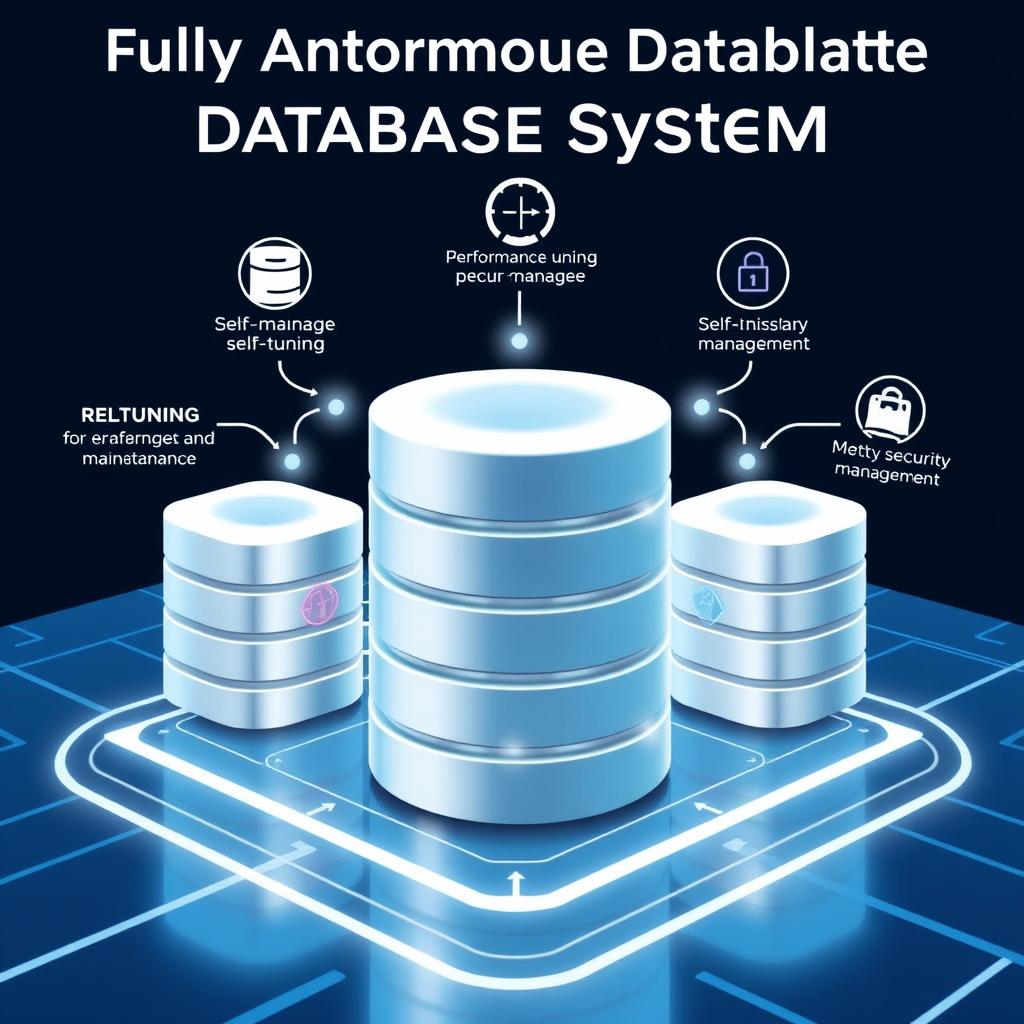
The evolution toward fully autonomous databases continues, with systems that not only self-tune and self-optimize but also self-secure and self-repair. These systems will require minimal human oversight, handling even complex administrative tasks automatically.
Multimodal AI Interfaces
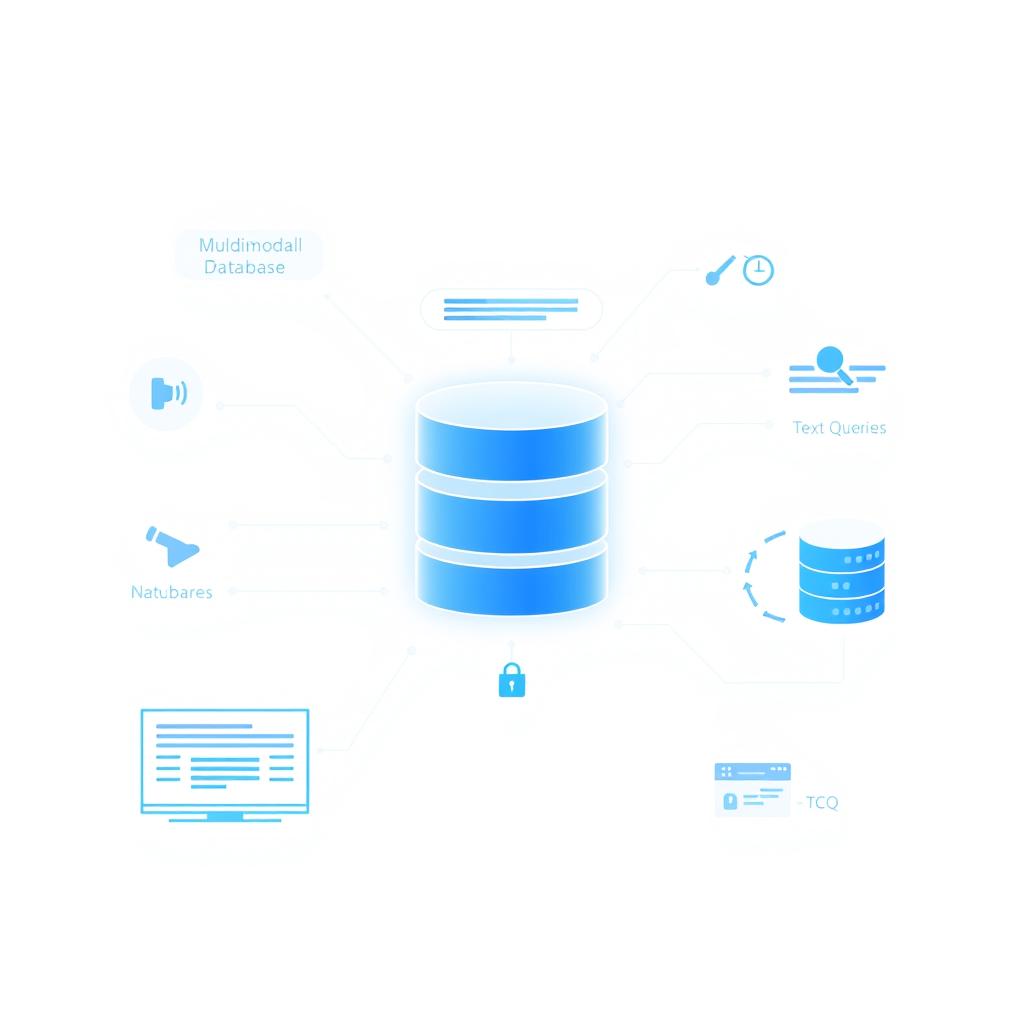
Future database systems will support increasingly sophisticated natural interfaces, including voice, gesture, and even augmented reality. These multimodal interfaces will make database interaction more intuitive and accessible to all users.
Federated Learning for Privacy
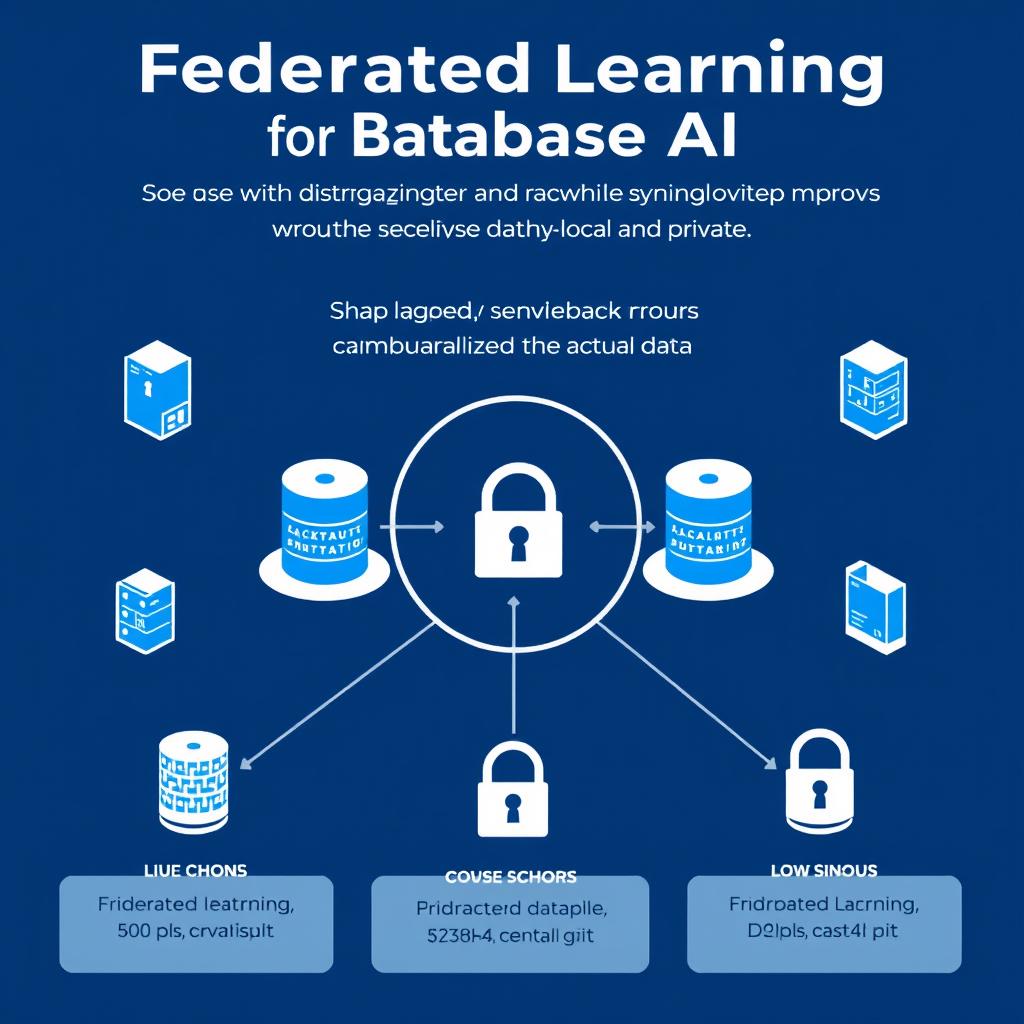
Federated learning techniques will allow AI models to improve across organizations without sharing sensitive data. This approach enables collaborative learning while maintaining strict data privacy and regulatory compliance.
Frequently Asked Questions About AI in Database Management
Is AI replacing database administrators?
No, AI is transforming the role of DBAs rather than replacing them. While AI handles routine tasks like performance tuning and query optimization, DBAs focus on strategic activities such as data architecture, governance, and business alignment. The partnership between AI and human expertise delivers the best results.
How does AI improve database security?
AI enhances database security through continuous monitoring and anomaly detection. Machine learning algorithms establish baseline access patterns and can identify unusual activities that might indicate security threats. The system can automatically implement protective measures, such as blocking suspicious connections or alerting security teams.
What types of databases work with AI management solutions?
AI database management solutions work with most major database platforms, including relational databases (SQL Server, Oracle, MySQL, PostgreSQL), NoSQL databases (MongoDB, Cassandra), and cloud data warehouses (Snowflake, BigQuery, Redshift). The specific capabilities may vary depending on the database type and version.
How long does it take to implement AI database management?
Implementation timelines vary based on environment complexity, but typical deployments range from 2-8 weeks. The initial setup and integration can be completed in days, followed by a learning period during which the AI builds its understanding of your specific database environment and workloads.
What measurable benefits can I expect from AI database management?
Organizations typically report 30-50% improvement in query performance, 40-60% reduction in administrative overhead, 25-35% decrease in infrastructure costs, and 70-90% fewer performance-related incidents. The specific benefits depend on your current environment and challenges.
Start Your AI Database Journey Today
Transform your database operations with intelligent, automated management that reduces costs and improves performance.
Embracing the Future of Database Management
The integration of artificial intelligence into database management represents a fundamental shift in how organizations handle their data assets. By automating routine tasks, predicting potential issues, and making data more accessible, AI enables unprecedented levels of efficiency, reliability, and insight.
As data volumes continue to grow and business demands intensify, AI-powered database management will become not just an advantage but a necessity for competitive organizations. Those who embrace this transformation now will be well-positioned to leverage their data assets for strategic advantage in an increasingly data-driven world.
